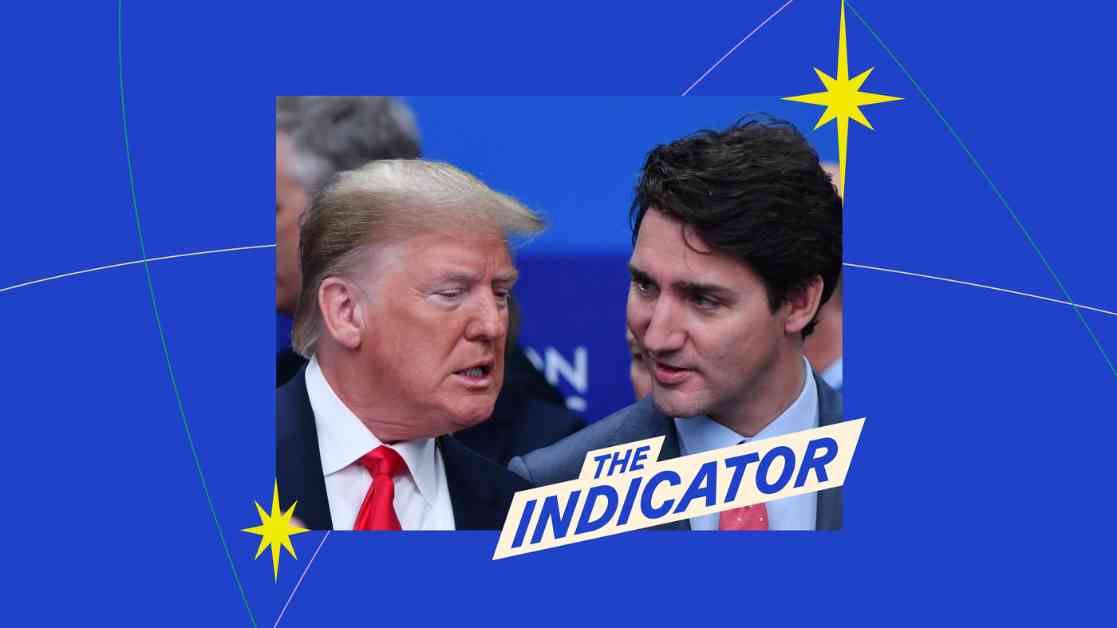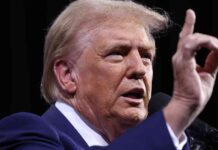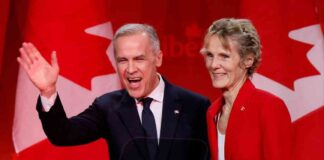President Trump’s recent threat of imposing grim triggers on Canada, Mexico, and China has sparked both concern and confusion among global markets. However, in a surprising turn of events, negotiations with Mexico and Canada have led to a temporary pause on tariffs for at least a month. Despite Trump’s previous statements that tariffs are not a negotiating tool, his actions have contradicted this stance in recent disputes, such as the one with Colombia earlier this year. Today, we delve into the intricate game theory behind Trump’s strategic use of tariffs, shedding light on the complex dynamics at play in international trade.
As the world grapples with the uncertainty of Trump’s tariff threats, it is essential to understand the underlying principles of game theory that influence his decisions. By examining the historical context and implications of tariffs, we can gain insight into the broader impact of these economic strategies on global trade relations and market stability. Join us on a journey through the intricate web of international diplomacy and economic theory as we explore the high-stakes game of tariffs and negotiations.
Decoding Trump’s Tariff Strategy: A Closer Look at Game Theory
The use of tariffs as a bargaining chip in international relations is not a new phenomenon. Throughout history, countries have employed tariffs as a tool to protect domestic industries, address trade imbalances, and exert leverage in diplomatic negotiations. However, Trump’s approach to tariffs has been marked by unpredictability and inconsistency, raising questions about the underlying rationale behind his decisions.
According to experts in game theory and economics, Trump’s use of tariffs can be seen as a strategic move to gain a competitive advantage in trade negotiations. By threatening to impose tariffs on key trading partners, Trump aims to force concessions and secure better terms for the United States. This high-stakes game of brinksmanship is reminiscent of Cold War-era nuclear standoffs, where the threat of mutually assured destruction served as a deterrent against aggression.
In a recent interview with renowned economist Dr. Marie Smith, she shed light on the psychological and strategic aspects of Trump’s tariff strategy. “Trump’s use of tariffs is a classic example of game theory in action,” Dr. Smith explained. “By creating uncertainty and unpredictability in the global market, he is able to gain leverage and extract concessions from other countries.”
The Global Impact of Trump’s Tariff Policy: Implications for Trade Relations
As Trump’s tariff threats continue to reverberate across the global economy, the implications for trade relations and market stability are becoming increasingly clear. The temporary pause on tariffs with Mexico and Canada has provided a brief respite from the uncertainty, but the underlying tensions and dynamics remain unresolved.
In a recent survey conducted by the International Trade Institute, economists expressed concern about the long-term impact of Trump’s tariff policy on global trade. “While tariffs can be an effective tool in addressing trade imbalances, the indiscriminate use of tariffs as a negotiating tactic can have unintended consequences,” noted Dr. Sarah Johnson, a leading expert in international trade.
The key challenge facing policymakers and economists is to navigate the delicate balance between protecting domestic industries and fostering international cooperation. By understanding the nuances of game theory and the strategic implications of tariffs, we can gain valuable insights into the complex interplay of economic forces shaping the future of global trade.
In conclusion, Trump’s use of tariffs as a bargaining tool highlights the intricate and high-stakes nature of international trade negotiations. By applying principles of game theory and economic analysis, we can unpack the underlying motivations and strategies driving Trump’s tariff policy, shedding light on the broader implications for global trade relations and market stability. As we navigate the uncertain terrain of international diplomacy and economic competition, it is essential to remain vigilant and informed about the evolving dynamics of the global economy.






















